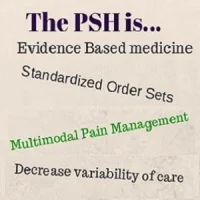The use of an economical drug for hip or knee replacements since 2013 has helped St. Michael's Hospital in Ontario, Canada reduce the number of transfusions performed during these surgeries by more than 40 percent without negatively affecting any patients.
“Having a coordinated blood management program is a very great value in limiting unnecessary transfusions and optimising patient management overall,” Dr. Greg Hare an anaesthesiologist at St. Michael’s told Healthmanagement.org.
A study published in the Canadian Journal of Anesthesia details how Tranexamic acid, commonly known as TXA, prevents excessive blood loss during surgeries. It is proven to be effective in orthopaedic, trauma and cardiac patients but due to a province-wide shortage, only patients at high risk of requiring a blood transfusion were given this drug. Once the shortage ended, anaesthesiologists at St. Michael's gave this drug to every eligible patient undergoing hip or knee replacement.
“We wanted to optimise TXA’s use in patients undergoing hip or knee replacements because these procedures often result in high blood loss and frequently require transfusions,” said Dr. Hare. “The drug costs about $10 per patient, while the average cost of transfusing one unit of blood is $1,200.”
This strategy reduced the hospital’s transfusion rate by 40 percent - from 8.8 percent to 5.2 percent. Patients who were given TXA did not experience any increase in adverse events, such as heart attack, stroke or blood clots. In addition, there were no differences in mortality rates or length of hospital stay.
“In Ontario, the ONTraC program has been very cost effective; indeed it is estimated to provide significant cost-savings, while optimising patient care. The use of TXA is most effective when utilised within such a setting, but based on the randomised trials competed and on our experience, it can be effective as a single therapy and could be used in all centres, even those without formal blood management programmes,” said Dr. Hare.
When asked to comment on whether other facilities have started using TXA, Dr. Hare said that since the initiation of this study, the overall use of TXA for arthroplasty surgery has increased substantially-largely due to the demonstrated efficacy of the many completed randomised trials. He said that many healthcare centres continue to use this therapy, however, there is still room to optimise TXA utilisation.
“Hospitals and surgical centres should make the use of this drug mandatory for such surgeries as it can help improve the quality of care and reduce the need for blood transfusions.”


![Tuberculosis Diagnostics: The Promise of [18F]FDT PET Imaging Tuberculosis Diagnostics: The Promise of [18F]FDT PET Imaging](https://res.cloudinary.com/healthmanagement-org/image/upload/c_thumb,f_auto,fl_lossy,h_184,q_90,w_500/v1721132076/cw/00127782_cw_image_wi_88cc5f34b1423cec414436d2748b40ce.webp)







